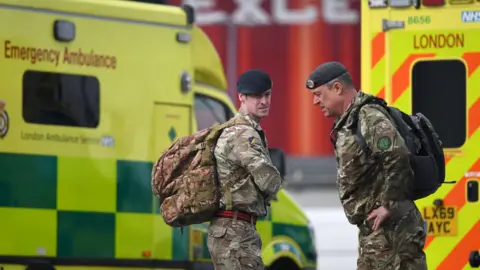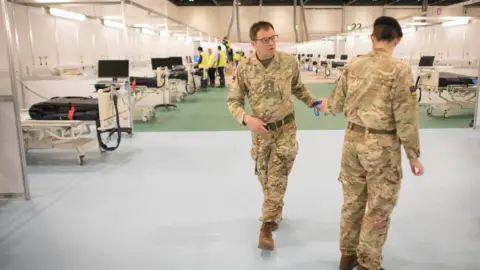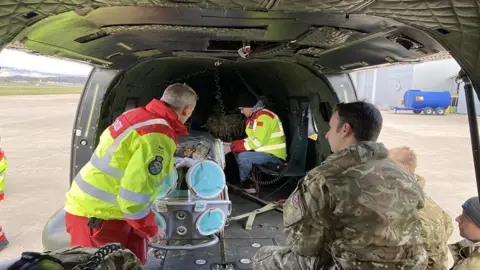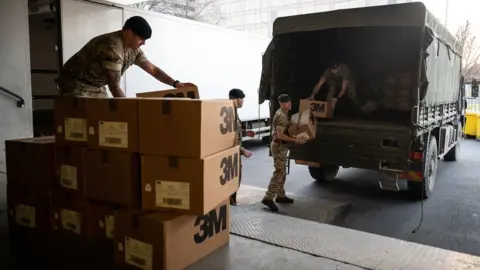Coronavirus: Armed forces to support ambulance staff
 Getty Images
Getty ImagesNearly 200 members of the armed forces are being deployed to help ambulance staff battle the coronavirus pandemic.
They will carry out tasks across Britain such as driving ambulances, the Ministry of Defence said.
The military have already been helping the NHS by delivering protective equipment and helping to build London's NHS Nightingale hospital.
Members of the Royal Navy, the British army and the Royal Air Force will be sent to five NHS ambulance trusts.
Their responsibilities will vary depending on the area they work in, but they are expected to drive ambulances and take calls from the public.
Some 80 military personnel will be sent to the South Central Ambulance Service in southern England, where they will drive emergency response vehicles, larger ambulances and work at the response centre to answer calls from the public.
In London, 21 medical personnel will help transport critical care patients between intensive care units; while Army engineers will help to maintain suction units used in ambulances.
In Wales, 60 soldiers have completed a two-day ambulance training course and will assist paramedics with non-clinical tasks.
The RAF is already assisting the Scottish Ambulance Service by using its Puma helicopters to take patients to hospital.
 Getty Images
Getty Images MOD
MODThe East of England Ambulance Service will receive 37 personnel, who will assist with tasks including driving and logistics.
The group all volunteer as emergency responders in their free time and have previously trained with the service.
Defence Secretary Ben Wallace said: "Our armed forces always step forward at the appearance of threats to the country and its people.
"Across the United Kingdom, soldiers, sailors, airmen and women have got the backs of our NHS colleagues as they confront coronavirus."
 Getty Images
Getty Images MOD
MODAs well as helping with the planning and construction of the NHS Nightingale hospital at east London's ExCel centre, the military are currently providing planning advice for the development of another four emergency field hospitals across the UK.
Some personnel have also been trained to fill and deliver oxygen tankers to NHS facilities. Others have helped deliver equipment designed to test front-line NHS staff for the virus.
